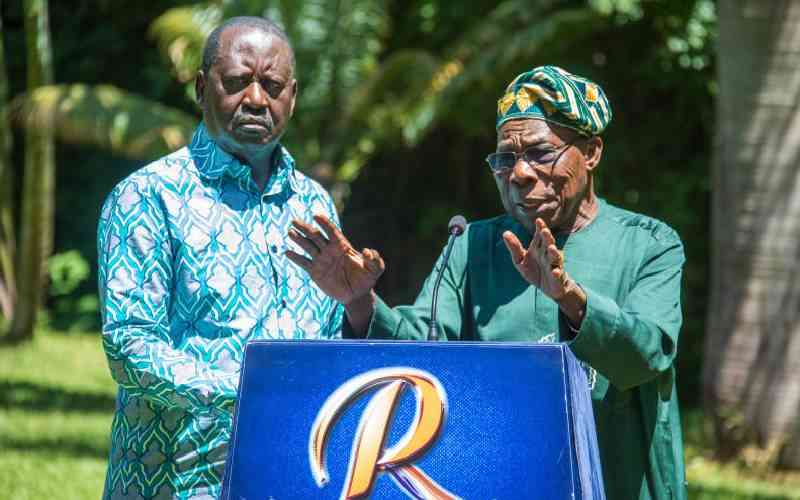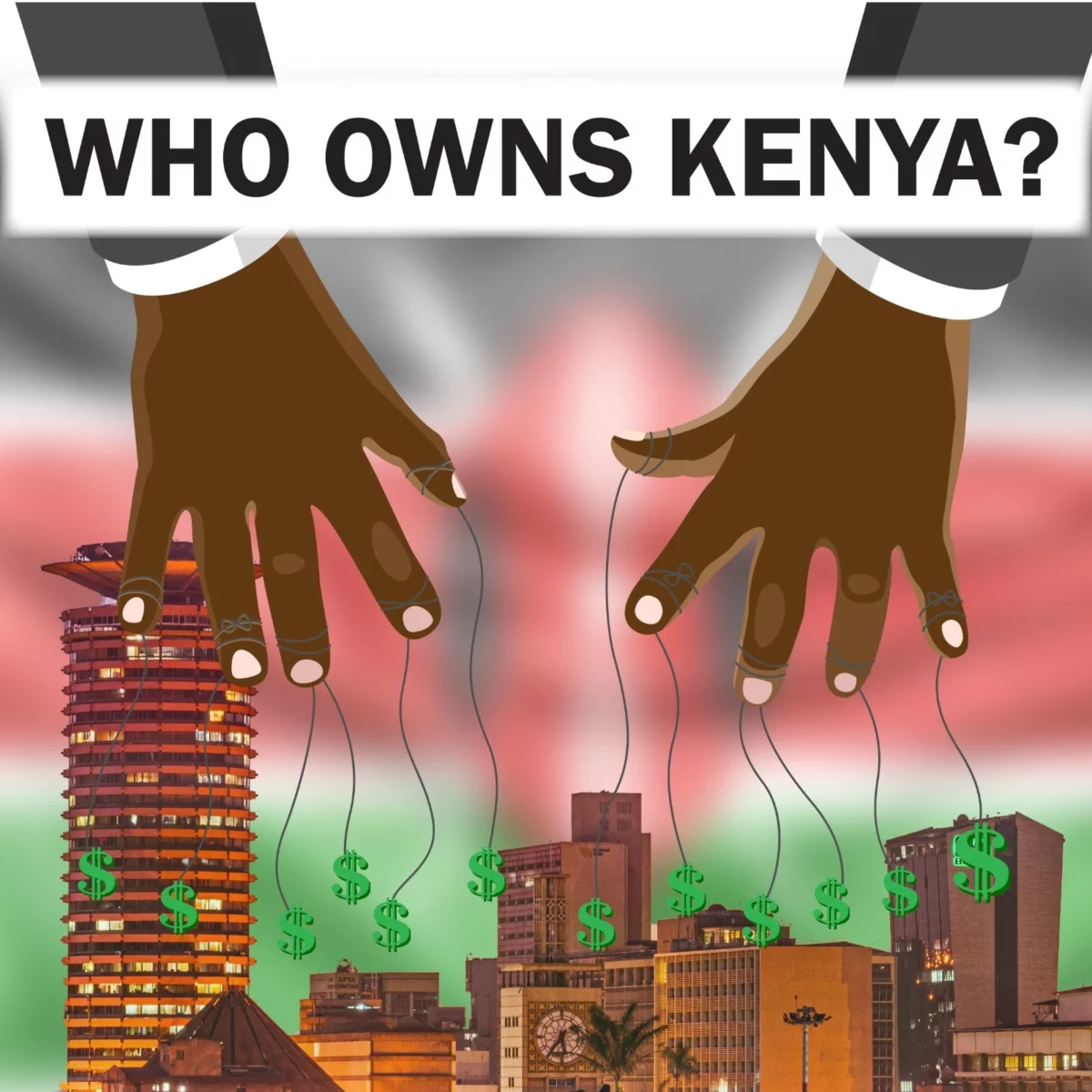In Kenya, the field of journalism has long been perceived as an influential and coveted profession, with journalists wielding significant power to shape public opinion. Journalists are seen as the gatekeepers of information, tasked with the crucial role of informing the public and holding those in power accountable.
However, recent times have seen a wave of departures from newsrooms, as journalists opt for diverse career paths, including politics, entrepreneurship, and taking government roles in communication departments. This trend has raised questions about the state of the journalism industry and the motivations behind these transitions.
Read also: Who Owns Kenya: Moguls Behind Information Flow in Kenya


Many media practitioners have their say into this, some believing that journalism is not compromised in Kenya, it is much alive, others saying that this has totally gone sideways.
When asked why he quitted Mainstream Media to establish one of the best investigative media house, John Allan Namu had to say this:
“I want to answer that question differently every time I am asked because, depending on the day, there are different motivations, but I think the overarching one is wanting to be almost like a master of my own destiny. You just want to be able to tell stories the way you want to tell them or influence journalism in a certain direction. Unfortunately, it comes from a kind of narcissism that all journalists have, that they think they can leave an imprint in society with their reporting. Mine was a bit stronger than others’.
![John Allan Namu, A seasoned Investigative journalist and the co-founder of Africa Uncensored. [Photo/X/John Allan Namu]](https://news.switchtv.ke/wp-content/uploads/2023/09/j4ktkpTURBXy85MjY0YmQ3MDVjN2QzOGFiMDJlMmJhZmNjMWIzZjIyZS5qcGeSlQMAzOfNAu7NAaaTBc0EsM0Cdg.jpg)
![John Allan Namu, A seasoned Investigative journalist and the co-founder of Africa Uncensored. [Photo/X/John Allan Namu]](https://news.switchtv.ke/wp-content/uploads/2023/09/j4ktkpTURBXy85MjY0YmQ3MDVjN2QzOGFiMDJlMmJhZmNjMWIzZjIyZS5qcGeSlQMAzOfNAu7NAaaTBc0EsM0Cdg.jpg)
“Other than that, you could tell that there had been a shift from the early to mid-2010s, a downwards shift in terms of professionalism within the mainstream media where there were instances of censorship and victimization. Lastly, I think the business model wasn’t very encouraging and I thought that we could try something else: we haven’t succeeded yet, but it looks promising. “ He added.
David Kagina, Journalist at Media max, weighs his views into this saying that, “…to answer the question, it is not. It’s loosing is best to corporate and politics as remuneration and stability as at now is questionable . Also journalist create great networks hence with their communication expertise its easier to gel in the “outside world “
![David Kagina, Reporter and a presenter at K24 TV [Photo/X/David Kagina]](https://news.switchtv.ke/wp-content/uploads/2023/09/1687934809700.jpg)
![David Kagina, Reporter and a presenter at K24 TV [Photo/X/David Kagina]](https://news.switchtv.ke/wp-content/uploads/2023/09/1687934809700.jpg)
Answering the question if he would ever take the same path as other ” former journalists “seen quitting to join corporates or even government departments, Kagina says that he would consider that putting the following into mind:
1.How much the remuneration and the other benefits entail
2.Terms of the employment contract ..if better I would consider.
3.What Impact my new role will Have to society
Journalism: More Than Just a Job
In the realm of journalism, the profession holds a unique difference, with some viewing it as a personal calling and others as a career path that draws individuals with particular personality traits.
Nevertheless, one undeniable truth is that journalism is a profession of immense responsibility. Journalists bear the crucial duty of informing the public, scrutinizing those in power, and ensuring accountability among those in authoritative positions.
!['Kanze Dena, former journalist at Citizen TV was appointed to be the State House spokesperson by Former president Uhuru Kenyatta 4 yrs ago, quitting her journalism career [Photo/Courtesy]](https://news.switchtv.ke/wp-content/uploads/2023/09/0fgjhs77p5bqorpf5-900x900.webp)
!['Kanze Dena, former journalist at Citizen TV was appointed to be the State House spokesperson by Former president Uhuru Kenyatta 4 yrs ago, quitting her journalism career [Photo/Courtesy]](https://news.switchtv.ke/wp-content/uploads/2023/09/0fgjhs77p5bqorpf5-900x900.webp)
However, a longstanding, unwritten rule in the journalism industry has been the notion that “once you depart from the field, returning is a rare occurrence.”
This principle primarily stems from concerns regarding potential conflicts of interest. Journalists who transition into roles within corporations or the political sphere may face perceptions of bias when reporting on topics associated with their previous domains.
Yet, there have been exceptions to this rule over the years, such as the case of George Stephanopoulos, who successfully made the transition from White House communications director under President Bill Clinton to the role of chief Washington correspondent for ABC News, illustrating that journalism, at its core, remains a dynamic and evolving profession.
The Politics-Journalism Nexus
The close relationship between journalism and politics in Kenya has led to a notable trend of experienced journalists departing from their newsroom roles to join government positions or political campaigns.
This phenomenon reflects the recognition by political leaders of journalists’ invaluable expertise in effective communication and media relations.
Notable examples include Dennis Onsarigo, Philip Etale, Kanze Dena, Dennis Itumbi, Hussein Mohamed, Raphael Tuju, Sabina Chege and several others who have seamlessly transitioned from journalism to key roles in Kenyan politics, leveraging their skills and extensive media networks to contribute to political communication strategies.
![State House Spokesperson Hussein Mohamed and President William Ruto when the former journalist was appointed Director of Communications in his Campaign on Monday, January 24, 2022. [TWITTER/WILLIAM RUTO] Journalism](https://news.switchtv.ke/wp-content/uploads/2023/09/Hussein-Mohamed.jpg)
![State House Spokesperson Hussein Mohamed and President William Ruto when the former journalist was appointed Director of Communications in his Campaign on Monday, January 24, 2022. [TWITTER/WILLIAM RUTO] Journalism](https://news.switchtv.ke/wp-content/uploads/2023/09/Hussein-Mohamed.jpg)
These journalists-turned-political figures are sought after by politicians due to their ability to connect with diverse audiences, shape public opinion, and navigate the complex landscape of media coverage.
Their experiences within the media industry and their relationships with fellow journalists and news outlets make them invaluable assets in the world of politics, where effective communication and public support are of utmost importance.
Entrepreneurship: A Path Less Traveled
While some Kenyan journalists are making the leap into government and politics, a notable shift is occurring as another group chooses the path of entrepreneurship, aiming to become leaders in the country’s media landscape.
Media entrepreneurship has also enabled financial autonomy for media outlets, granting them greater latitude in shaping narratives.
In contrast, traditional media’s reliance on gatekeepers led to centralized control over information flow, with limited access for newcomers to publish and control content distribution platforms.
digital media has democratized information access and distribution, offering the masses unprecedented control.
However, this democratization has also posed challenges and is clearly a double-edged sword that has equally led to the erosion of trust. There appears to be an opportunity cost between credibility and freedom in this context.
This shift represents a departure from tradition, where journalism careers in Africa seldom led to entrepreneurship.


Remarkable case study in this realm include those of:
- Raphael Tuju’s founding of Ace Communications with East Africa’s largest audiovisual library
- John Allan Namu founding Africa Uncensored, Kenya-based investigative journalism platform.
- Hilary Ng’weno’s contribution to Kenya’s media landscape through Nairobi Times and STV
- Carole Mandi, who acquired and relaunched True Love and Drum magazines
- Hussein Mohamed’s establishment of Iris Media
- Zain Verjee’s media production company, Zain Verjee Group, with offices in New York and Kenya.
- Rose Kimotho also stands out for founding Three Stones Limited, the parent company of 3 Stones TV, the first free-to-air digital television channel broadcasting in Kikuyu.
These journalists-turned-entrepreneurs are reshaping the media narrative in Kenya through their innovative ventures and dedication to fostering the industry’s growth.
By venturing into entrepreneurship, they are not only becoming their own bosses but also contributing to the diversification and expansion of media offerings in the country, ultimately enriching the media landscape for both consumers and creators.
The Challenge of Digital Disruption
While the journalism landscape undergoes these significant changes, it is also grappling with the challenges posed by digital disruption.
The digital age has transformed the way news is created, distributed, and consumed. However, it has also eroded trust in the media, a trend observed not only in Kenya but across Africa.
Support for media freedom has decreased, while support for government control has increased. The pursuit of metrics like attention, audience, and likes has led to the proliferation of clickbait content, prioritizing quantity over quality. This approach has blurred the lines between accurate journalism and sensationalism.
![On Jan 2023 Kennedy Muriithi left NTV After 10 Years of Service saying “I Take a Break From Newsroom” [Photo/Courtesy]](https://news.switchtv.ke/wp-content/uploads/2023/09/kENNEDY.jpg)
![On Jan 2023 Kennedy Muriithi left NTV After 10 Years of Service saying “I Take a Break From Newsroom” [Photo/Courtesy]](https://news.switchtv.ke/wp-content/uploads/2023/09/kENNEDY.jpg)
To address these challenges, media outlets, including those founded by entrepreneurial journalists, must adapt to the evolving needs of their audiences. In an era of personalization, audiences seek informative, relevant, and actionable news.
Experts suggest embracing “People Powered Journalism,” involving the public in the reporting process to produce stories that resonate with the audience. Media outlets must empathize with their audiences and undergo necessary transformations to remain relevant and trustworthy.
The evolving landscape of Kenyan journalism presents a complex tapestry of transitions, from journalists entering government and politics to entrepreneurial endeavors. Amid these changes, the industry faces the daunting challenge of adapting to the digital age while regaining public trust.
Subscribe to Switch TV
As Kenya’s media landscape continues to evolve, it is essential for journalists, media outlets, and entrepreneurs alike to embrace new models, foster relationships with their audiences, and, above all, deliver journalism that is both impactful and responsive to the needs of the nation. The future of Kenyan journalism lies in its ability to adapt and innovate while staying true to its core mission of informing and serving the public.




























